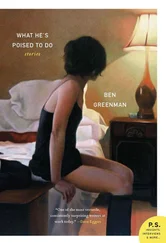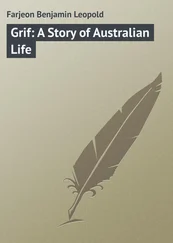“What are you doing here?” she said. She smiled and freed her other hand from a stroller to pull me into a hug.
“I’m teaching,” I said, neglecting to mention I was also fleeing a failing marriage — arguably the truer answer. “What about you?”
“I’m staying with a friend,” she said. The friend’s husband was army, she explained, stationed at the airfield outside town, and they lived in one of the blocks of married housing on the other side of the train station. I nodded. The day before I’d taken a bus in that direction and seen a Popeye’s and a Taco Bell locked behind a tall, guarded fence. “This is my Macy,” Amy added, looking down at the two-year-old who lay in the stroller’s seat, passed out. “She likes it when I push her through here. Sometimes it’s all I can do to get her to sleep.” Amy looked up again. In that moment she seemed barely changed in the decade-plus from the girl I remembered. The same freckled nose with its mousy tip, the same sly light in her eyes, the same thin T-shirt fabric pulling across the same soft pouch of belly. She said we should hang out and I agreed.
WE WENT TO THE CAFÉ MALDANER, just around the corner, where we picked slices of cake from a glass case and sat in the high-ceilinged, wood-paneled tearoom. I’d wanted to go inside the Maldaner since I first saw it. According to the gold lettering on the window, it dated to 1859, and I imagined Dostoevsky, who’d lived here in the 1860s, drinking coffee inside as he fretted about the previous evening’s losses at the gaming tables.
As we sat Amy tended to her daughter. She had woken, and, after staring silently at me for three minutes (“Macy, this is one of Mommy’s friends,” Amy had said), she started throwing her toys at a mink-coated frau whose spun-sugar sphere of white hair made an irresistible target. The toys kept landing short, and I would pick them up and give them to Amy, who would give them back to the crying Macy, who would throw them again. I wondered if this was all that would happen and if it was for the best. But after Macy’s fit, as Amy asked me about high school — who I still saw, if I remembered this or that drama — she took my hand, and once we finished our cake I walked her to my apartment. There we parked Macy in front of the TV, which I turned to KiKA, the children’s channel, and we went into the bedroom. As we stood together, Amy’s back pressed against me, I lifted her skirt and bit her neck. She squealed — I remembered that squeal, heard sometimes in the hallway before class whenever another sex-deprived, aching boy poked or tickled her generous flesh. Then she told me to hurry. We only had until the cartoon ended.
AFTER WE FINISHED she wheeled Macy out of my apartment, and I sat down to work on my syllabi. I’d given Amy my phone number and my e-mail address, but as I looked at my laptop’s screen I hoped that was it, that she would step back into her life and I into mine. The last thing I wanted was a new entanglement.
So when she called me a few days later, asking if I’d like to meet her, I was worried.
“Just for an hour,” she said.
“My wife,” I said.
“You said you haven’t talked to her in a month.”
“Macy.”
“I’ll leave her with Beth.”
She waited while I said nothing. I found myself thinking of the large, milk-white breasts that I’d admired at sixteen and that, as we’d stood in my bedroom, had remained bound behind her bra, unexplored.
“I’m not sure,” I said.
“Think of it this way. We’re friends. What’s wrong with being friends?”
But we’d never been friends. She was just a girl I’d happened to know years ago. Still, it was enough. Two hours later I was waiting for her outside the Karstadt, one of the massive, glass-walled shopping centers downtown. She showed wearing jeans and hoop earrings, and I felt twelve years younger, the entirety of my life spread before me, unmade.
MY WIFE SAT enshrined chief among the mistakes and disappointments I’d come to Germany to escape. I met her in my third year at Michigan, when she was a first-year fresh from a small liberal arts college in Maine. Clara came from an old-money family of Chicago lawyers, bred for summers at Saugatuck and seats on museum boards, and attended our graduate seminars in peasant dresses no peasant could afford and high leather boots that pressed smoothly against her calves. At parties she would stand in the corner telling practiced stories to a small, rapt circle of fellow students clutching bottles of Oberon or Winter White. About the night the president (before he was president) came for cocktails: “He had really hairy ears. You think someone would tell him.” About the year after her parents’ divorce: “I met my dad each week at this Chinese place. I always ordered the Happy Family.” A pause, then a half smile. “He never got the joke.”
That I made her love me, that I somehow entered her existence and found a place in it — the comfiest chair in the living room of her soul — I still count as the greatest accomplishment of my reinvention. I had been a sweaty, acned nobody from a small town in East Texas that most people had never heard of, then a scholarship student at the state university with no claim on anything higher than the dreary futures (pharmaceutical sales, a chain store’s management track) touted at the job fairs held each year in our basketball arena. But a marathon semester spent polishing an application essay ended with me in a grad program where my peers were people with the kinds of East Coast, private-school educations I had long envied. By the time I met Clara I had transformed myself, through the alchemy of a research assistantship with a famous theorist and a paper on Spinoza and Coleridge given at a major conference, into a promising scholar, a rising star of the department. I was climbing, never so sure of what I was climbing toward until I saw Clara standing in her circle — her hair loose over her temples, her upper lip pooched by the slightest of overbites — exuding class privilege like a musk.
We married a year later. The ceremony was small, in the chapel of a large downtown Chicago church, St. James Episcopal. The other graduate students dubbed us the power couple, and we took an apartment in a house in the Old West Side with a porch we’d sit on when it was warm, drinking gin and tonics, and two spare rooms we used as offices. Clara dressed me in thrift store blazers, idly ran her fingers through my thinning hair while she read. In the summer we spent long weeks at her family’s place on Lake Michigan, swimming and working through stacks of books. Our happiness seemed unquestionable. But the following spring, after a semester spent trying to break ground on my dissertation—“Representations of Eastern Europeans in the Nineteenth-Century Novel,” chosen after a misleadingly exuberant seminar — I had a crisis. I saw all my future years spent waking to wrestle with murky thoughts, to put cold words on cold pages no one would ever read. It was a rather mundane crisis, my adviser told me, but I didn’t get over it. Meanwhile, Clara had turned into a plodding worker, in her office every morning, and only now that we were married did I discover that what I’d thought was a quiet, aristocratic disdain was instead pure shyness, that her affected coolness shrouded a sentimental heart. I had expected the air in this new world to which I’d laid claim to be different, to ease me past imperfection and strife in a narcotic mist. But sealed together in that house, Clara and I began to fight. Usually I was the provoker, coming to Clara with some correction I thought she could make to her habits or person (the dissertation abandoned, I had little else to brood about). At first, whenever I caught the sound of her crying behind her office door, I’d go to her, apologize, but eventually I chose to leave her be and waited instead for her to come to dinner, amnesic smile pinned to her face. When, at the end of summer, I told her about the job in Germany, a one-year exchange appointment I’d begged from our grad director, she said she didn’t want me to go, but within a day she’d packed my things in a box.
Читать дальше











